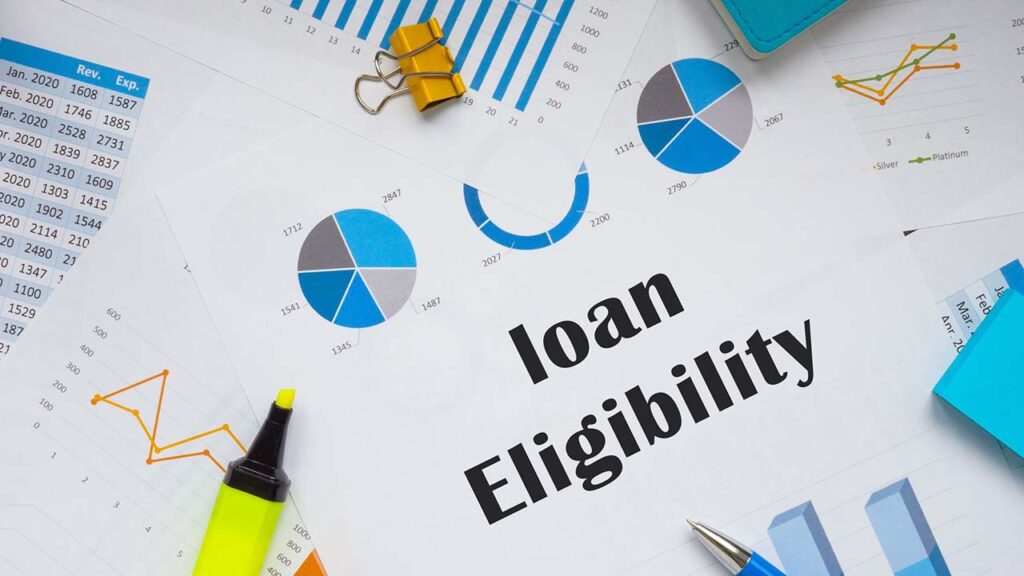SGDLoan.com – When considering commercial real estate investment in Singapore, one of the first steps is understanding commercial loans for property. These loans can help businesses and individuals secure properties for investment or operational purposes.
In this article, we will explore key factors such as the down payment, loan-to-value (LTV) ratio, eligibility criteria, and how to navigate the loan process to make an informed decision.
Commercial loans for property are essential for those looking to purchase commercial real estate in Singapore, whether for business operations or investment purposes.
Understanding how these loans work and the factors influencing your loan application can make the entire process smoother and more efficient.
What is a Commercial Loan for Property?

A commercial loan for property is a type of financing offered by financial institutions to help individuals or businesses acquire commercial real estate. This could include office buildings, retail spaces, industrial properties, or even warehouses.
Unlike residential loans, which are primarily for individuals buying homes, commercial loans are designed for properties used in business operations. These loans often come with stricter eligibility requirements and higher interest rates, reflecting the increased risk for lenders.
In Singapore, the commercial property market is vibrant, and these loans play a critical role in supporting the acquisition of commercial properties.
Whether you are an investor or a business looking to expand, commercial loans provide an avenue to secure the necessary capital for property acquisition.
Key Terms in Commercial Property Loans

Commercial Property Downpayment
The down payment for a commercial property loan typically ranges between 20% to 40% of the property’s value, depending on the lender and the specifics of the loan. This amount is required upfront and directly impacts the amount you can borrow.
For example, if you are purchasing a property valued at SGD 1 million, the down payment would be at least SGD 200,000 (at a 20% down payment rate). Higher down payments may be required for riskier investments or properties with lower value.
It is important to factor in the down payment requirement when planning for a commercial loan. This upfront cost will influence not only your eligibility for a loan but also the total amount you will need to finance.
Commercial Property Loan-to-Value (LTV) Ratio
The Loan-to-Value (LTV) ratio is an important factor when applying for a commercial property loan. It refers to the percentage of the property’s value that the lender is willing to finance.
In Singapore, the typical LTV ratio for commercial property loans is around 60% to 80%. A higher LTV ratio means that you can borrow more, but it also comes with higher risk for the lender, which may result in higher interest rates.
| Property Value (SGD) | Loan Amount (60% LTV) | Loan Amount (80% LTV) |
|---|---|---|
| 1,000,000 | 600,000 | 800,000 |
| 2,500,000 | 1,500,000 | 2,000,000 |
This table shows the typical loan amounts for different property values, depending on the LTV ratio. Understanding your LTV ratio is crucial in determining how much you can borrow and the overall affordability of your loan.
Commercial Loan Against Property
A commercial loan against property allows the borrower to secure the loan using an existing commercial property as collateral. This type of loan is useful for businesses that need capital but are unwilling to liquidate their property assets.
The loan amount is usually a percentage of the property’s value, and the interest rates may be more favorable than unsecured loans.
This type of financing is often used for cash flow management, business expansion, or refinancing existing debt. By leveraging an existing property, businesses can access the necessary funds without losing control of their real estate assets.
Types of Commercial Loans for Property

Loan to Buy Property
A commercial property loan for purchasing property is one of the most common types. It allows you to finance the acquisition of a commercial property, such as an office building or retail space.
The loan terms typically include a fixed or floating interest rate, with a loan repayment period ranging from 10 to 30 years.
Eligibility for these loans depends on several factors, including the applicant’s creditworthiness, income, and the type of property being purchased.
Lenders usually evaluate the potential of the property to generate rental income or capital appreciation when making their decision.
Refinancing and Equity Loans
Refinancing a commercial property loan allows property owners to take out a new loan to pay off an existing loan, typically to secure a lower interest rate or better terms.
Equity loans, on the other hand, let you borrow against the equity you’ve built in your property. Both options can be used to reduce monthly payments or access additional capital for business growth.
Refinancing can help improve cash flow, reduce interest expenses, or consolidate debts. Equity loans are ideal for businesses looking to leverage their property value to fund growth initiatives or cover unexpected expenses.
Eligibility Criteria for Commercial Property Loans in Singapore

Salaried Person Eligibility
Salaried individuals are eligible for commercial property loans, provided they meet the income and creditworthiness criteria set by the lender.
Typically, you will need to demonstrate a stable income, a good credit score, and sufficient funds to cover the down payment and other loan-related costs.
For salaried persons, the loan approval process may be more straightforward, but a higher interest rate may apply if the applicant’s credit history or financial situation is less favorable.
Salaried employees may also face lower LTV ratios if they have high levels of personal debt or a limited credit history.
Understanding these factors before applying for a commercial property loan can help streamline the approval process.
Self-employed/Business Owner Eligibility
Self-employed individuals and business owners are also eligible for commercial property loans, although the criteria may be more stringent.
Lenders often require proof of business income for the past 2–3 years, along with detailed financial statements and tax returns.
This group may face higher interest rates due to perceived higher risk, but the loan terms can be more flexible depending on the applicant’s business stability and financial standing.
Self-employed applicants should ensure their financial documentation is well-prepared to increase their chances of loan approval.
Commercial Property Loan Rates in Singapore

Interest rates on commercial property loans in Singapore vary, depending on the lender and the specifics of the loan.
As a general guideline, the interest rates for commercial loans range between 2% and 4% per year, but this can fluctuate based on factors such as LTV, loan term, and the borrower’s creditworthiness.
Lenders often offer fixed or floating interest rate options, and choosing between these can impact the total cost of the loan over its lifespan. It’s important to assess both options and determine which best suits your financial situation and long-term goals.
Calculating Commercial Property Loan in Singapore

Using a commercial property loan calculator can help potential borrowers estimate how much they can borrow, the monthly repayment amount, and the total interest paid over the life of the loan.
Here’s how to use a commercial property loan calculator:
- Enter Property Value: Input the value of the property you plan to purchase.
- Down Payment: Specify the down payment percentage.
- Loan Term: Select the loan term (usually between 10 and 30 years).
- Interest Rate: Input the interest rate offered by the lender.
- Calculate Monthly Payment: The calculator will provide an estimated monthly payment based on the inputs.
This tool can help you better understand the financial commitment of taking out a commercial property loan, ensuring that you are prepared for the repayment schedule.
How to Buy Commercial Property in Singapore
Buying commercial property in Singapore involves several steps. Here is a simplified guide:
- Research Property Options: Identify the type of property you want (office, retail, industrial, etc.).
- Secure Financing: Approach a bank or financial institution to secure a commercial property loan.
- Make an Offer: Once financing is secured, make an offer on the property.
- Due Diligence: Conduct a thorough due diligence process to assess the property’s value, condition, and legal standing.
- Close the Deal: Once all terms are agreed upon, complete the paperwork and close the deal.
Taking these steps ensures that you are prepared for the entire commercial property buying process. Working with a property agent or legal advisor can help clarify any complex aspects of the transaction.
Down Payment and Loan Terms
As mentioned earlier, the down payment for a commercial property loan typically ranges between 20% and 40%.
The loan terms, including the repayment period and interest rate, are negotiated with the lender and should be chosen carefully to ensure that the loan is manageable over the long term.
Carefully review loan agreements before signing, ensuring that you are aware of any hidden fees or charges. It’s important to factor in the total loan cost, including interest payments, over the loan’s life.
For those looking to make an informed decision on commercial loans for property, it is crucial to fully understand the terms, eligibility requirements, and financial implications of securing such a loan.
Consulting with a financial advisor or property expert can also help navigate the complexities involved in commercial property financing.
By taking the time to understand the ins and outs of commercial loans for property, you can better position yourself to make a successful investment in Singapore’s competitive real estate market.









